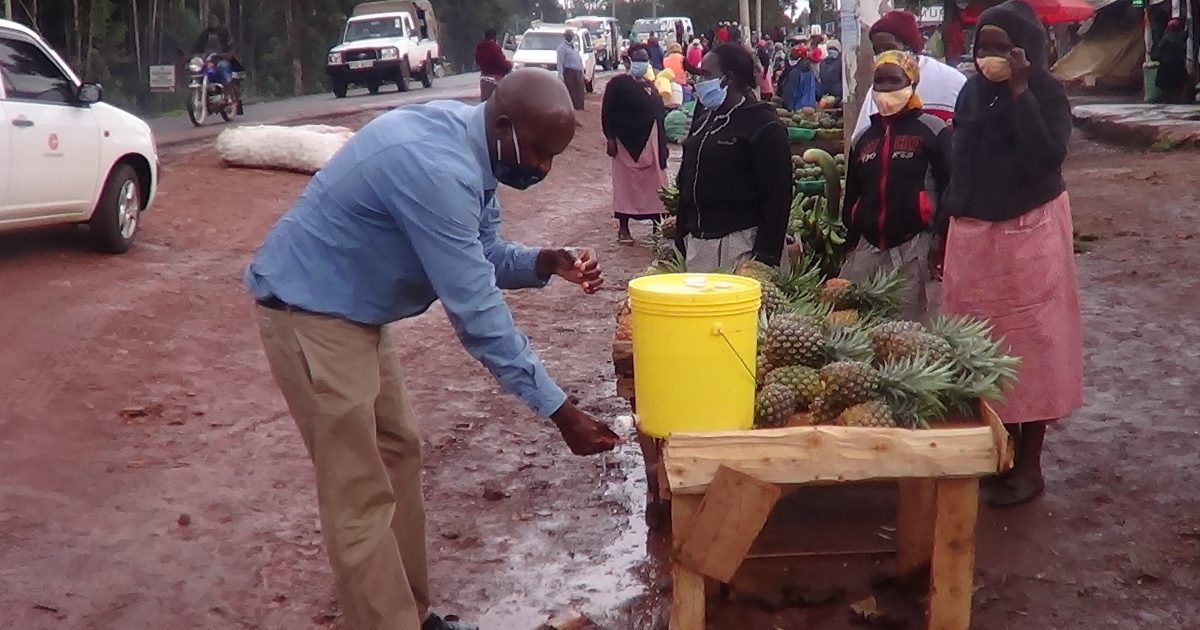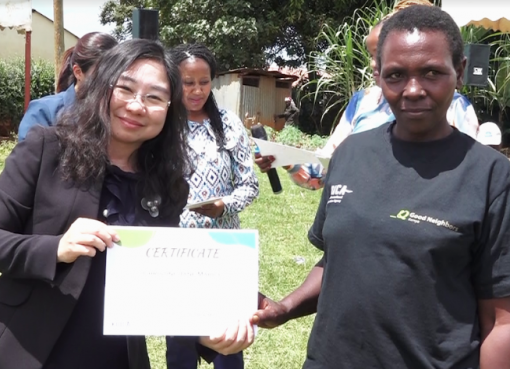
The Pineapple traders at Ngoina road junction in Bureti sub-county are experiencing poor business following the suspension of their fruit hawking business along the busy Kericho-Kisii highway last month, as the war on Covid-19 pandemic intensifies.
The Ngoina road highway women pineapple group is currently recording low returns following a directive to stop selling the pineapples along the busy highway coupled with incurring additional expenses to purchase antibacterial sanitizers, protective face masks and soap as homegrown measures stipulated by Ministry of Health (MOH) against the deadly virus.
Their biggest market for the 70 women traders are passengers’ majority aboard PSV motor vehicles plying the road that links Kericho, Bomet, Sotik, Kisii and Nyamira counties.
The

said before the pandemic she would sell up to 50 pineapples in a day, which would fetch double profit but the volume plummeted drastically as they are now forced to stare into empty vehicles as their fruits remain displayed for long hours on their makeshift stalls.
“Generally we all are experiencing a shrink in our sales. Earlier on, we would make slices of a full pineapple and sell them for Sh 10 but with the directive we stopped all this and we are forced to now sell whole pineapples getting no profit,” Bore said.
She added, “We would normally buy ripe pineapples directly from farmers each at Sh. 50 and sell them for Sh. 70. Currently I am selling two pineapples in a day. Business is just bad as passengers going to Nakuru, Nairobi, Kisumu and Eldoret no longer pass here.”
Another distraught trader, Gladys Cheruiyot said following the order and curfew they all are struggling to meet basic needs of their respective families, since they have to purchase face masks, sanitizers and soap, in addition to fetching water from river Chemosit which is two kilometres away.
“We buy the masks for Sh.50 or Sh.100 each, a bar of soap goes for Sh.100, while a 50ml sanitizers goes for Sh 160. At the same time, those residing far from their business are forced to incur transport expenses of Sh. 100 to beat the curfew and with zero sales some of our members opt not to come to work daily. We received several 250-litre water tanks from our elected leaders and from the county government, but we have to fetch water to fill them daily. We urge our governor, women rep and our area MP to hear our plight by assisting us with things like face masks, sanitizers and soap to improve on our working environment knowing that what we get from selling our fruits will go to providing for our families,” she added.
The Kericho Chamber of Commerce Chairman, David Bii urged the traders to embrace the laid out guidelines to protect themselves against coronavirus, whose impact was not only being felt in the county but globally.
He called upon the county government to ensure there was constant supply of water to the designated water points along the highway now that hygiene was a priority.
“The main consumers of the pineapples are people on the highway and the unfortunate thing nowadays is that the vendors are not allowed to run close to chasing matatus and buses but they have to wait for customers to come to them. This is a challenge but it is for their own safety and they ought to adhere to this directive,” Bii said.
“We are working to make sure the pineapple traders are protected through reducing congestions and use of protective measures. I am also urging the county government to continue supplying water as they have supplied water tanks, but the supply of water ought to be constant,” added Bii.
By Sarah Njagi





